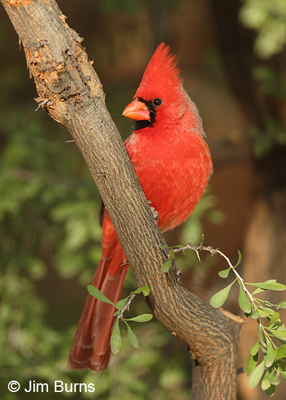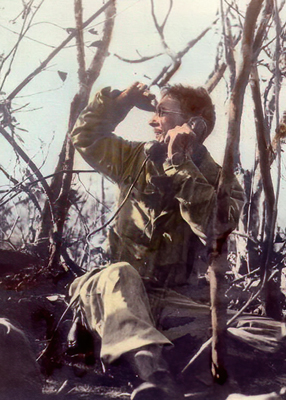
If nostalgia is the label we place on fond remembrances of things past, what is the word that describes missing things that never were? In my heart I know I should start by thanking him for his greatest gift to me, but my visceral reaction would be first to ask the imponderables. All the questions without answers, a life’s journey with no maps or guide, scenes played solo with neither backdrop nor audience, a tapestry missing threads in warp and weft.
As a birder and an amateur naturalist, I’d want to know if he took notice of the exotic (to him) avian life along the Villa Verde Trail as it snaked along the fog drenched mountains of Luzon, 4,000 feet above the sea over deep canyons carving the jungle landscape. Did it remind him of his beloved Blue Ridge Mountains in Virginia where he and his bride had purchased land and planned to raise horses and a family?
As a nature photographer and a former college athlete, I’d inquire about the marksmanship medals he earned, the technical details those required, and the hours spent on the firing range, all those skills mastered though his own brother once confided to me that he had no idea where “that gun thing came from.” I, too, would like to know.
As a college student in the ‘60s, a Vietnam protester, I’d question how he came to embrace a professional career fraught with so many cruel uncertainties, a life choice shunned or disavowed by so many in our culture, both then and now. And by me.
As an only child raised by a single parent, a cold, withdrawn war widow, grieving to her death life’s ultimate loss, I know I’d ask him about their courtship, the intimate details of their life together, their dreams and fears, and the warmth and love he must have seen in her. Those things I never saw or knew when I came to know her. Things she would not, or perhaps could not, ever share with me.
I never knew him, of course. He missed my first two Christmases, 1943 and 1944, “as the 1st Battalion on Luzon received a new Commanding Officer, a recent transplant from the First Cavalry Division, Lieutenant Colonel James P. Burns . . . a fighting man who already wore a Silver Star, a Bronze Star, and at least two Purple Hearts.” I have those Stars and Hearts, and I have the Distinguished Service Cross awarded him posthumously after he made to his country, in the spring of ’45, the ultimate sacrifice. They, and that passage from a war’s history book, speak to me of pride, courage, leadership, and love for the principles of that country.
He gifted me with three books: African Game Trails, by Theodore Roosevelt; The Color Key to North American Birds by Frank Chapman; and Velvet Paws and Shiny Eyes by Carol Cassidy Cole, together a strange and wonderfully disparate collection of natural history titles comprising a powerful introduction to the love and appreciation he must have had for the natural world—the ultimate road trip, an invaluable sourcebook, and a morality play, respectively.
Teddy Roosevelt dedicated his book to his own son whom he called “the side-partner in our great adventure.” The irony is not lost on one who has the book but missed that partnership and questions why and how. And will never know those answers. We shared no great adventures, no field trips, no mentoring into manhood. There are no memories. But I have his genes, his greatest gift to me. And for all that I have done, they have done. And for that I must be grateful, and I would thank him.